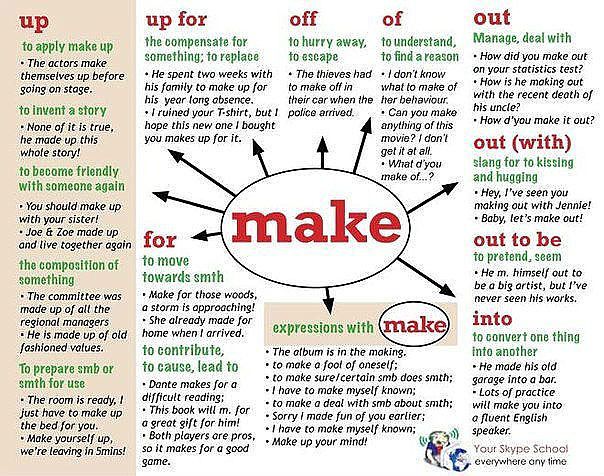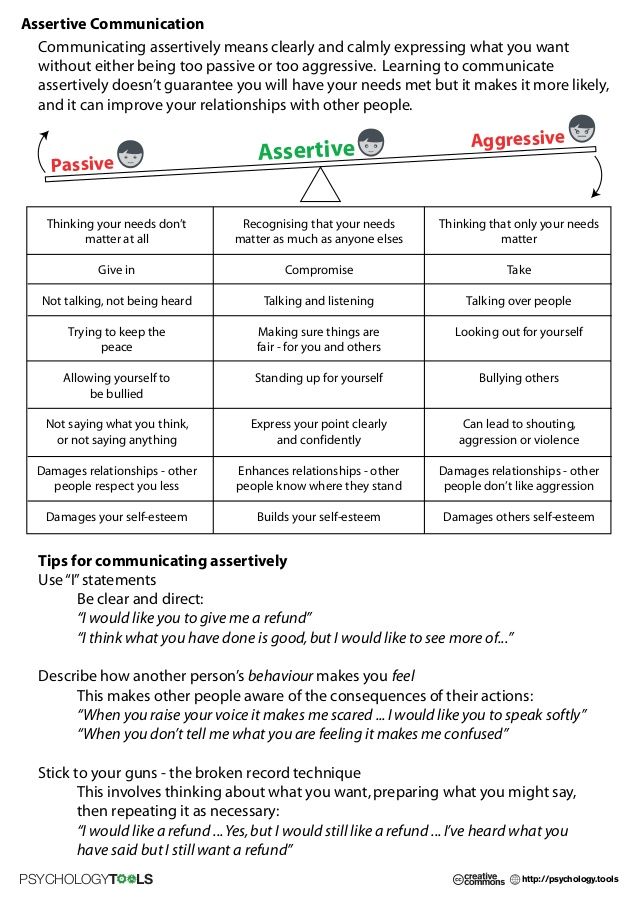How soon should you move in together
How Soon Is Too Soon to Move In Together? 15 Signs You're Ready
You’re in love, ready for the next step, and thinking about when to move in together.
But doubts are creeping in, and you’re probably wondering, “Is it too soon to move in together?”
You don’t want to rush into this level of commitment if the timing isn’t right or you haven’t done your due diligence.
So when is a good time to move in together?
To help you make the best decision, we’re breaking down the ins and outs of cohabitation.
How long should you wait?
What are the red flags?
How will you know when it’s time?
Let’s dive in!
What's in this post:
- How Long Should You Date Before Moving in Together?
- How Soon Is Too Soon to Move In Together? 15 Red Flags The Timing Is Not Right
- 1. You Avoid Discussing Money
- 2. You’re Navigating Major Life Changes
- 3.
You’re in the Early Stages of Recovery
- 4. You and Your Partner Constantly Argue
- 5. You Have Yet To Play House
- 6. You Can’t Support Yourself
- 7. You’re Being Pressured
- 8. You’re Not In Love
- 9. You Hate Each Other’s Friends
- 10. Your Life Goals Are Completely Different
- 11. Your Eating Habits Are Diametrically Opposed
- 12. You Still Pretend To Be Perfect
- 13. Lack of Trust Is Motivating Your Decision
- 14. You Don’t Know How To Compromise
- 15. Your Gut Says “No”
- When Should A Couple Move In Together? 15 Signs You’re Both Ready
- 1. You Basically Live Together Already
- 2. You’re Both on the Same Page About the Relationship
- 3. You’re Financially Ready
- 4. You’re Financially Communicative
- 5. You Know How To Communicate With Each Other
- 6. Saving Money Isn’t Your Only Motivation
- 7. You’re Supportive of Each Other’s Goals
- 8. You’re Comfortable With How To Split the Rent
- 9.
 You Can Deal With the Other Person’s Mess
You Can Deal With the Other Person’s Mess - 10. You’ve Successfully Taken a Long Trip Together
- 11. You’re Not Hiding Major Secrets
- 12. You’ve Survived a Huge Fight
- 13. You Feel the Same Way About Pets
- 14. You’re Secure Enough To Talk “Worst Case Scenarios”
- 15. Your Gut Says “Yes”
- FAQs About Moving In Together
- Is three months too soon to move in together?
- Is seven months too soon to move in together?
- How do you know if it’s too soon to move in together?
How Long Should You Date Before Moving in Together?
If you’ve landed here, you’re probably grappling with a couple of questions: “When should I move in with my boyfriend?” or “How soon is too soon to move in together?”
Conventional wisdom advises couples to wait at least a year before cohabitating, but experts insist two years is the magic number.
Ideals, however, don’t always align with the actual stats.
According to Dr. Brenda Wade, “same-gender couples, on average, move in together within 6 months. For all other couples, it seems to be on average about 2 years.”
Interestingly, Americans like to move in together before getting married. According to one study, 70% of marriages where the woman was under 36 when she got hitched started with at least three years of pre-wedding cohabitation.
How Soon Is Too Soon to Move In Together? 15 Red Flags The Timing Is Not Right
The experts give general advice, but every couple is different.
Some people move in together within a month and stay together for the rest of their lives.
Others wait a decade to move in together and separate within six months of a cohabitation experiment.
So what about you? Where does your relationship fall on the scale?
Since every relationship moves at its own pace, using benchmarks is a logical way to determine when to move in together.
To that end, let’s start with the cohabitation red flags.
1. You Avoid Discussing Money
If you’re not at a point where you’re comfortable discussing and mingling finances, the relationship is likely not yet strong enough to survive cohabitation. You’ll be sharing bills and need to trust each other monetarily.
2. You’re Navigating Major Life Changes
Life is like a white-water rafting trip. Sometimes, it’s calm, smooth floating; other times, you’re battling raging rapids.
And when you’re navigating a rough patch, it’s usually best not to make significant changes. Wait until you once again reach serene waters to change your living arrangements.
3. You’re in the Early Stages of Recovery
Congrats! You’re clean and sober and feeling great. But you shouldn’t be making huge commitments during your first two years of sobriety — regardless of what plan you’re following. Give yourself time to get to know the new you.
4. You and Your Partner Constantly Argue
If you constantly argue while living apart, moving in together will be a zillion times worse. Sometimes we end up dating people who are ultimately wrong for us, and frequent fighting is not an encouraging sign.
Sometimes we end up dating people who are ultimately wrong for us, and frequent fighting is not an encouraging sign.
5. You Have Yet To Play House
It’s a good idea to “play house” before officially moving in together. Spend a month at one of your places. How does it go?
Are you itching to have your own space after three days? A trial run will give you a clear idea of the relationship’s health.
6. You Can’t Support Yourself
Times are tough, and cutting expenses in half may sound like a good idea. But think thrice before making this leap for this reason.
If it doesn’t work out, you could be stuck between a rock and a hard place, owing more money than you would have.
7. You’re Being Pressured
It’s your life. Don’t let peer pressure — or any type of pressure — back you into a cohabitation corner. If you enjoy having your own place, keep it! Take Virginia Wolfe’s advice and maintain “a room of one’s own.”
8. You’re Not In Love
Are you in love or settling because everyone around you is pairing off, moving in, and getting married? It can be frustrating.
It may feel like you’re being left behind. But remember that each life unravels differently. It’s better to be true to yourself than keep up with the proverbial Joneses.
9. You Hate Each Other’s Friends
Although it’s unromantic to think about, successful relationships take more than just love. There must be a sense of camaraderie — not with just each other, but with each other’s friends.
That doesn’t mean you have to love every single person he hangs with, but you shouldn’t hate when he has the gang over either. And the same goes for your crew.
10. Your Life Goals Are Completely Different
You want to live off-grid and grow your own food. He wants to be a Wall Street tycoon who aspires to one-day have a butler. How you ended up together, nobody knows.
For a while, it’s fun. It’s your “opposites attract” phase.
But in the long run, relationships like this rarely stand the test of time. If you’re too different, living together will likely sour quickly.
11. Your Eating Habits Are Diametrically Opposed
You’re a committed kosher vegan; the only two food groups he consumes are milk and dairy.
This is another scenario with terrible odds. It’s challenging to live with someone whose lifestyle is diametrically opposed to your own. And when cohabitating, food becomes a huge deal.
12. You Still Pretend To Be Perfect
Learning to acknowledge your faults is a big part of growing up. If you’re still at a point where you blame others for your misdeeds — or project your insecurities onto friends and family — you’re probably not ready to cohabitate with a lover.
13. Lack of Trust Is Motivating Your Decision
It’s a cliche, but it’s true: changing a zebra’s stripes is impossible. If you’re dating a dog, you can’t force him to be faithful.
So if the only reason you’re moving in with him is to keep him from cheating, prepare to have your heart crushed.
14. You Don’t Know How To Compromise
Be honest: Are you a princess? Do you freak out if things don’t go your way? Is your partner willing to accommodate your every whim? If not, maybe you’re not yet ready to move in with someone.
15. Your Gut Says “No”
Sometimes, your gut knows you better than your brain. If it’s telling you to slow down and hold off, listen.
There’s a reason you’re not enthusiastic. Figure that out before advancing the relationship.
When Should A Couple Move In Together? 15 Signs You’re Both Ready
We’ve discussed the red flags to consider before deciding whether to move in with your partner. Now, let’s take a glass-half-full approach and explore 15 signs that you’re both ready to cohabitate.
1. You Basically Live Together Already
Do you pretty much live together already? If it’s been many moons since you’ve stayed apart, and you’re getting along fine, it’s probably safe to consolidate.
2. You’re Both on the Same Page About the Relationship
Have you talked about where you both see the relationship headed? Are you on the same page? If you’re not mature or committed enough to talk about a future with each other, moving in together may not be the wisest step.
But if you’re walking in the same direction toward something serious, then cohabitating may make the most sense.
More Related Articles
25 Controversial Relationship Questions To Ask Your Partner
40 Indisputable Turn-Ons For Women And Men
Everything You Want to Know About A Female-Led Relationship
3. You’re Financially Ready
Money matters when you live with your lover. Are you ready to pay your way? Do you have debt that could affect your arrangement? Have you told your partner about it?
If you can’t support yourself, moving in with another person may not be a good idea. First, get on your own two feet. The process is a lot more enjoyable if you are.
At the very least, make sure you’re open and honest about your fiscal situation with your partner. If they plan to support you, get it in writing.
4. You’re Financially Communicative
You must be open about your base financial situation, but you also should be willing to communicate about money continually and effectively. Hidden purchases and expenses always eventually erupt.
Hidden purchases and expenses always eventually erupt.
But if you’re open and honest with your partner, and feel comfortable with their financial health, pat yourself on the back. You’re adult enough to take it to the next level.
5. You Know How To Communicate With Each Other
Can you easily bring up difficult topics with your significant other? Do you know how to disagree without immediately blowing up?
Can you tell when the other person needs space? You’re probably ready to cohabitate if you can confidently answer all these questions with a “yes.”
6. Saving Money Isn’t Your Only Motivation
It’s not just about saving money. Instead, you two are ready to elevate the partnership to the next level.
7. You’re Supportive of Each Other’s Goals
Is the relationship lopsided? Does one of you put more effort into the relationship? If you have each other’s back, then you’ve checked off another cohabitation requirement.
8. You’re Comfortable With How To Split the Rent
You’ve talked about how you’ll split the rent, and you’re both 100% comfortable with the agreement. It’s also wise to discuss a backup plan if one of you cannot fulfill your end one month.
It’s also wise to discuss a backup plan if one of you cannot fulfill your end one month.
9. You Can Deal With the Other Person’s Mess
Sure, it may annoy you sometimes, but your partner’s messes don’t send you over the edge — and vice versa. What about chores? Have you decided how to split them up? If you’ve covered all these bases, you’re probably ready to share a roof.
10. You’ve Successfully Taken a Long Trip Together
Many relationship therapists suggest taking a long trip together. It’s a great way to gauge how you’ll react when forced to be with the other person all the time.
If you’ve done it and enjoyed the closeness, that’s one more clue that you may be ready to live together.
11. You’re Not Hiding Major Secrets
If you’re still keeping major secrets from your significant other, it’s wise to reevaluate the relationship. Why don’t you feel comfortable telling them certain things?
However, if you can share your deepest, darkest secrets with your partner, it’s a sign that you’re ready to cohabitate.
12. You’ve Survived a Huge Fight
Couples that always fight usually don’t survive — but neither do couples that bottle up their feelings.
If you’re thinking about moving in together, you should have at least one major fight under your belt. Living together can be tricky, and you need to have experience working your way through conflicts.
13. You Feel the Same Way About Pets
Pets can make or break a relationship — so talk about them before moving in together. Are you on the same page in terms of four-paw family members?
Do you agree on the cats, dogs, birds, hamsters, or reptiles question if you’re both pro-pet?
If you both have the same attitude toward non-human “children,” that bodes well for taking the next step toward cohabitation.
14. You’re Secure Enough To Talk “Worst Case Scenarios”
You’re not ready to cohabitate if you’re uncomfortable talking through “what ifs” — including “what if we break up.” Always have a contingency plan. Life is unpredictable.
Life is unpredictable.
15. Your Gut Says “Yes”
Consult your gut. As we mentioned above, it’s a capable radar. Trust it if it’s signaling that all systems are ready for liftoff! But even so, put your head and heart above your gut on this decision.
Sometimes you can mistake a romantic notion for intuition.
FAQs About Moving In Together
Is three months too soon to move in together?
Most relationship experts advise couples to wait at least a year before moving in together.
But that doesn’t mean people who cohabitate after only three months won’t last. However, folks who wait a bit longer have a better track record.
Is seven months too soon to move in together?
Seven months is enough time for some couples to know if they want to cohabitate. However, most marriage counselors recommend waiting at least one year. That said, if you can check off certain relationship milestones, you may be ready.
How do you know if it’s too soon to move in together?
If you’re constantly fighting, have yet to discuss finances, and one of you still has several secrets tucked away, you’re probably not ready to share a home with your romantic partner.
Cohabitation is a big step, and it can be fulfilling and fun. However, think carefully before making the leap prematurely. Moving out is not as fun as moving in.
When Should We Move in Together?
Deciding to move in together is a big step, so with a checklist at hand, you can assess just how ready you are.
Every couple has its own milestones. One of the biggest is the decision to order that moving truck and co-create a shared living space.
Should you move in together? There’s a lot to factor in and no one-size-fits-all timeline. But there are several signs that might indicate that you’re ready.
This question is very individual to each couple, says Kim Egel, a marriage and family therapist in Cardiff, California.
“However, if you think of a new relationship as a life transition, then you can give the relationship at least 1 year to wait to make the leap to cohabitate,” she says.
How long do most couples date before living together?
“Same gender couples, on average, move in together within 6 months. For all other couples, it seems to be on average about 2 years,” says Dr. Brenda Wade, a psychologist in San Francisco, California.
For all other couples, it seems to be on average about 2 years,” says Dr. Brenda Wade, a psychologist in San Francisco, California.
Research from 2017 found that from 2011–2015, 70% of marriages among women under 36 years old started with at least 3 years of cohabitation before marriage.
Signs you’re both ready to move in together
It’s not a matter of when you should live together but why, says Wade.
“Sit down and ask yourselves why you want to live together,” she says. “The secret ingredient is being clear, which means don’t try to figure out things after you move in together. Figure it out before.”
You may be ready to move in together if you’re on the same wavelength about:
- cleaning
- finances
- schedules
- alone time
- communication
- your future as a couple
- how to set up your living spaces
It can also help to be open about what it’s like to live with a certain mental health condition, so you both know how best to support each other.
Here are some guides to living with and dating people who have:
- ADHD
- anxiety
- bipolar disorder
- narcissistic traits
Love is a start, but it’s not everything. There’s a lot more that goes into a couple moving in together.
1. You’re used to each other
If you’re already spending most of your nights together, and have successfully weathered disagreements, meeting each other’s families, and relationship hardships, you might consider these solid steps toward cohabitating.
2. You’ve talked about finances
Will rent be split down the middle, or proportional to how much you earn? What expenses will be shared or separate? It’s a good idea to get on the same page about this before you sign on the dotted line.
3. You have a game plan for chores
The dishwasher isn’t going to unload itself, sadly. While you may have some idea of each other’s habits, consider discussing how you’ll divvy up cleaning and how much mess is OK with each of you.
4. You’re setting boundaries
Will phones be allowed in the bedroom? Is there a pet in your future?
You might take time to co-create a vision for your sacred space that makes sense for both of you, while setting healthy boundaries from the get-go.
5. You’ve learned to argue in a healthy way
If you can successfully overcome disagreements, communicate effectively, and listen to your partner, you’ll have a better chance of success in a shared space.
6. You can be yourself
“When you start dating someone, you may feel obligated to keep all of your typical, but occasionally humiliating behaviors… hidden from them,” says Dr. Elizabeth Lombardo, a psychologist in Chicago, Illinois.
“It may be time to live together if you’ve grown so comfortable that you’re not holding in gas or pretending to be a more delicate eater than you are,” Lombardo adds.
7. You feel excited
It’s natural to have mixed emotions about a big milestone. But, ideally, you’ll feel more excited than nervous about this upcoming transition.
If you feel dread, anxiety, or pressure to move, pump the brakes until you can sort out your feelings.
It’s helpful to understand that anxiety and depression can affect decision-making.
Egel says that if you’re feeling unsure, you should have more intimate conversations around the future.
“Factor in important topics such as want for a family, finances, and emotional readiness,” she says. “These are topics that can help deepen a connection, or show where there is work and a conversation to be had.”
If you need support, a relationship coach or a couple’s therapist can help you navigate challenges and improve communication.
There’s no perfect how-to list on dating, moving in together, and marriage, so there’s no “right time” for everyone.
When to move in together is a decision you’ll have to make as a couple.
Before you make the big decision, it can help to take an honest inventory of your relationship, finances, and vision for the future. If you need more support or are feeling pressured, consider reaching out to a professional who can help.
If you need more support or are feeling pressured, consider reaching out to a professional who can help.
5 steps that you can take if you plan to move to another country - Migration to vc.ru
I want to tell you, using my experience as an example, what the first steps on the way to moving to another country can be. I immigrated twice - first from Russia to Israel with my husband and daughter, then from Israel to Canada alone with three children.
76,099 views
If you dream of moving to another country, then this article will help you navigate and determine where to start moving towards your dream.
Downtown, Montreal (empty streets during quarantine) Tim Morozov
I know from experience that sometimes there comes a point in life when you realize that it's time to change something in life. For example, have you reached a ceiling in career and development in your country, or think that you wish your children a better future than the prospect they have now, or do not agree with the poor attitude of the government of your country towards residents, or simply that you always I was attracted by the opportunity to live in another country, to understand a different culture and mentality. There can be many reasons. Yes, they are not so important, the important thing is that you have a dream - to move to live in another country.
There can be many reasons. Yes, they are not so important, the important thing is that you have a dream - to move to live in another country.
Friends and acquaintances often ask me how I did it and where to start? I decided to make a short guide on what are the first 5 steps you can take. I have also added my own examples to illustrate each step.
My step list:
Step 1 - Gather Information
Once you have decided on the country you want to go to or not, this first step is the most important. To understand your capabilities and prospects, you need to have information. Start with the simplest and most accessible: the Internet, blogs, friends, acquaintances. It is useful to read stories about how life looks like in the country you are interested in from the inside. This will help you decide where you really want to go. And if the goal is already there, you will get a more accurate picture of what you can expect.
I heard a lot of stories about how life is in Canada before I started to take any steps. I realized that Canada is not a beast, not as far as it seems, that immigration is quite real, and that there is life and its advantages.
I realized that Canada is not a beast, not as far as it seems, that immigration is quite real, and that there is life and its advantages.
Step 2 - Assessing Your Capabilities
In many countries there are special sites with information about immigration, where you can find points calculators - a very useful tool that will give you a preliminary assessment of your capabilities. In addition, there are many agencies specializing in immigration assistance, where you will be given all the necessary information. You can use any option, although I advise you to use all the options available to you.
For example, when we were thinking about a second immigration, after hearing stories from friends about Canada, we made an appointment with a lawyer at an immigration agency in Tel Aviv. Although I wanted to go to Australia more, the lawyer, having studied our background, gave recommendations to apply to the French-speaking part of Canada, to Quebec. Different countries have different requirements, and in Canada, in addition to the federal immigration program, each province may have its own programs. I was the main applicant, and with my education, profession and work experience, the best chances were in Quebec.
Different countries have different requirements, and in Canada, in addition to the federal immigration program, each province may have its own programs. I was the main applicant, and with my education, profession and work experience, the best chances were in Quebec.
Step 3 - Preparing / closing gaps
Sometimes it happens that you really want to move, but according to the preliminary assessment you do not score. This may be insufficient knowledge of the language and its absence in general, or you do not have the most sought-after profession, not enough money or something else. Doesn't matter. Everything can be tightened up, and shortcomings can be corrected.
For Canada, I didn't get enough points because my specialty was not on the essentials list. I knew English, but French - no. Also, according to the requirements of the program for which we applied, I could get additional points for a 10-day visit to the country. Therefore, I began to learn French, having reached the required level, passed the exam and flew to Montreal for 10 days.
Step 4 - Prepare and submit documents
After deciding where you want to move, the most tedious part of collecting documents begins. If you do everything yourself, you will certainly find a list of documents on the official immigration website. All documents will need to be translated into the required language of the selected country. If you decide to seek help from an agency, they themselves will tell you what to do and what documents are needed, and they will translate and send everything themselves. Sometimes after the first submission of documents, you may be required to send some additional documents. Be prepared for this.
In the case of Israel, we collected all the documents ourselves. But in order to obtain a visa to Canada, we decided to contact a lawyer in order to avoid unnecessary headaches and be sure that all the papers are filled out correctly.
Steps 3 and 4 may be interchanged depending on the selected country and immigration program. Sometimes the waiting time for a response can take several years. In my case it took 5 years. Knowing the statistics of the visa waiting time, we first submitted the documents, and then began to get the missing points. That is, the sequence of steps was reversed - first step 4, then 3.
Sometimes the waiting time for a response can take several years. In my case it took 5 years. Knowing the statistics of the visa waiting time, we first submitted the documents, and then began to get the missing points. That is, the sequence of steps was reversed - first step 4, then 3.
Step 5 - Thinking over the strategy
When all the documents have been submitted, and everything in your power has been done, it's time to think about what you will do there, where to work, how much money you need to move and for the first time, until you get a job, which schools to send your children to, and so on Further. Many prefer to start with this step. But I believe that if you have a dream, then it is better to rush headlong into its realization. The points calculator is also needed so that you understand what chances you have of assimilation in a new country. And immigration services work well enough to weed out those who do not have a chance to be realized. Some countries have good social support. Therefore, you are unlikely to have a chance to die of hunger or stay on the street. Excessive thoughts and doubts at the first stage will only hinder you and deprive you of confidence.
Therefore, you are unlikely to have a chance to die of hunger or stay on the street. Excessive thoughts and doubts at the first stage will only hinder you and deprive you of confidence.
Before leaving for Canada, I gathered information on what to do first. For example, getting a social number, medical insurance, opening a bank account, enrolling children in school… I found an apartment in advance and bought furniture there. Quebec provides free French courses to immigrants and pays scholarships to students. I did not plan to look for a job right away, so I also added these courses to my plans. Thinking about how we will get there. Since the flight is long and with transfers, and I was flying alone with three children, I chose the option with a long transfer time and rented an apartment for an overnight stay. It so happened that after a 5-hour flight, we spent half a day and a night in Geneva, and after spending the night in comfort, we were ready for the second 7-hour flight . .. It was enough for me to work out the strategy for the first few steps.
.. It was enough for me to work out the strategy for the first few steps.
In general, everything is quite feasible. If you have a dream, then you have the strength and potential to realize it. The main thing is to soberly look at the possibilities and act. This process only seems scary at the beginning, when you get involved, it becomes just steps and actions that you need to take.
What to discuss before you start living together
May 19, 2021Relationships
Honest talk about a future together is the basis of a calm and pleasant relationship.
Share
0The list is quite extensive, so by no means try to discuss everything in one evening. In principle, this is impossible, and it is not necessary. Break the list into several small conversations. First of all, solve the most important questions for you. And some generally can be left until the moment when you have already moved in.
Household duties and home improvement
How will you distribute the rest of the household chores?
In addition to cleaning, you also need to wash and iron clothes, wash dishes, take out the trash, buy groceries and cook food. To get started, figure out which responsibilities each of you find it easier to fulfill. Someone hates messing around with dirty dishes, but ironing is almost a pleasure. Someone hates washing floors, but cooks with inspiration. For the same chores that both of you don't like, set up a duty schedule.
To get started, figure out which responsibilities each of you find it easier to fulfill. Someone hates messing around with dirty dishes, but ironing is almost a pleasure. Someone hates washing floors, but cooks with inspiration. For the same chores that both of you don't like, set up a duty schedule.
Do any of you have special eating habits?
Or perhaps one of you should be on a diet all the time. Will you follow the same diet together or cook different meals for each? It is worth discussing this in advance.
Who showers first in the morning?
If you leave your home for work at about the same time, then this is one of the fundamental questions that can give rise to many quarrels.
Do I need to change the situation in the apartment?
Should I make repairs or buy some furniture? Who will organize the process - search, read reviews and directly purchase? And by the way, will it be joint or individual expenses? After all, it may happen that one of you cannot live without a chair, while the other, in principle, does not need it.
What will you do with your collections of books and CDs, if any? How do you organize a place to store them?
Relationships
How often will you spend evenings apart?
There are couples who do not want to be apart even for a minute and do absolutely everything together. And there are those who sometimes need personal time to meet friends or relatives, go to master classes in drawing or woodcarving.
It is important to understand what each of you thinks about this and come to some decision even before you start living together.
Another important question: do you always have to have dinner together? Indeed, for many families, a joint dinner is a significant tradition, a time when common affairs and plans are discussed.
What if one of you wants to be alone for a while?
It is worth finding or organizing a corner in your apartment where you can temporarily renounce the whole world. And agree that at such moments even your partner will not bother you.
How will you spend time together?
When you live separately, it is easy to plan a variety of activities, because their purpose in one is to be together. So, it can be a picnic in the park, and watching a movie, and lunch in a cafe. But when you live together, it's easy to slide into the fact that all your free time you will lie on the couch and watch TV shows. Over time, it will become increasingly difficult for you to come up with other leisure activities, and this will bring a feeling of boredom and lethargy.
Think of joint activities. Run, take photo walks, go to exhibitions and workshops, try to share each other's hobbies. If one person goes skiing, the other will most likely be uncomfortable if he does not share this hobby.
Which of you will keep a calendar of friendly and related meetings?
When you meet your friends at the mall by chance, you end the conversation with "Let's have lunch together sometime." And when, in your opinion, this "somehow" comes, your partner suddenly remembers that you were invited to dinner together at his aunt's. Get a common Google calendar and enter all joint visits and trips into it.
Get a common Google calendar and enter all joint visits and trips into it.
Do your ideas about the development of relationships match?
Some people get married a couple of months after they met, others only after many years of living together. Talking too much about your plans for the future puts pressure on relationships and can lead to fights, but sometimes they are needed.
Be honest with each other.
Are you afraid of the prospect of marriage? Tell your partner about it. It is likely that he is also afraid of this and you will agree to choose a moment when together you can confront fear. There will always be something frightening on the horizon: buying an apartment, having children. It's important to make sure both of you are ready for the next step.
Do you need the tradition of sending off to work in the morning and meeting in the evening?
It seems that we are already delving into insignificant trifles, a kind of family micromanagement, but these are really significant moments. It is important for someone that before leaving, the spouse kissed goodbye and wished good luck, and in the evening met with gentle hugs. Someone does not even notice when his partner leaves home and when he returns. Both are fine as long as it suits both of you and doesn't make one of you feel like something is going wrong.
It is important for someone that before leaving, the spouse kissed goodbye and wished good luck, and in the evening met with gentle hugs. Someone does not even notice when his partner leaves home and when he returns. Both are fine as long as it suits both of you and doesn't make one of you feel like something is going wrong.
What are the boundaries of your couple's private life?
Of course, many moments of your relationship are worthy of telling your friends about them. But there are things that no one but your couple should know about. It is important for you to agree on where this boundary lies, because everyone has a different understanding of privacy.
Finance
Who will keep track of utility bills?
And who will pay for them? Who will pay rent or make mortgage payments?
How will you spend money on joint purchases?
Throw away every time it's time to buy something? Summing up at the end of the month? Will you open a joint account?
How much of your budget will you spend on non-essential items?
Such as cafeteria meals, alcohol and takeout. Someone will happily eat pizza 6 days a week, while for a spouse it will be a waste of money. Find a compromise. For example, during the work week you have dinner at home, and on weekends you go somewhere to take a break from cooking.
Someone will happily eat pizza 6 days a week, while for a spouse it will be a waste of money. Find a compromise. For example, during the work week you have dinner at home, and on weekends you go somewhere to take a break from cooking.
What expenses are important to you?
For clothes, furniture and gadgets, beauty salons, concerts, films, travel. For several years of living together, they, in general, will be determined by themselves, but it is better to discuss them at least partially so that there is no dissatisfaction or misunderstanding on the part of one of you.
What is the financial balance of each of you?
It will be unpleasant after the wedding to find out that one of you has wild debts on loans. If you are aiming for a serious relationship, it is worth discussing such things in advance.
What are your financial goals for each of you?
Loan repayment? Travels? Buying a sofa or laptop? Buying an apartment or saving? You may have completely different financial goals, but it’s worth voicing them so that you understand what each of you needs and how to balance these needs with a joint budget.
What are your plans to achieve the announced goals?
Do you already have some savings, will you start saving now or will you pay off gradually? To support and motivate each other, you can use financial accounting services and applications in which you can create a family account.
How do you deal with financial pressure
It's rare for a couple to have the same income. More often than not, one spouse is better off financially than the other. Not the fact that this state of affairs will continue for life. Perhaps one of you will suddenly begin to rapidly develop a career or you will decide that one of you should find a quieter, but less paid job. In the end, someone will need to sit with a child for a couple of years if you are planning to have children.
It is important that each of you feel comfortable and in your place, and not feel like you are carrying a heavy burden.
It is also worth thinking about what you will do if one of you unexpectedly loses your job. Maybe you should prepare a financial cushion for this case.
Maybe you should prepare a financial cushion for this case.
Remember, the inability to handle money is not a congenital disease. Personal finance management can and should be learned. Learn from each other and adopt good habits.
And other questions
- How do you show your love?
- How do you show your dissatisfaction or anger?
- How do you like to spend the holidays?
- How will you communicate with each other's families? How often do you want to visit relatives? How will you behave if problems arise in the family of one of you, for example, someone gets sick?
- How do you feel about religion? Do you adhere to any religion?
- Do you want to have children?
- What are your views on raising children?
- What happens if one of you wants or has to move to another city or country? Maybe you both dream about moving?
- What career do you dream of?
- All questions related to sex.
- How will you deal with health problems?
- How will you behave if you break up?
There seem to be too many questions.














